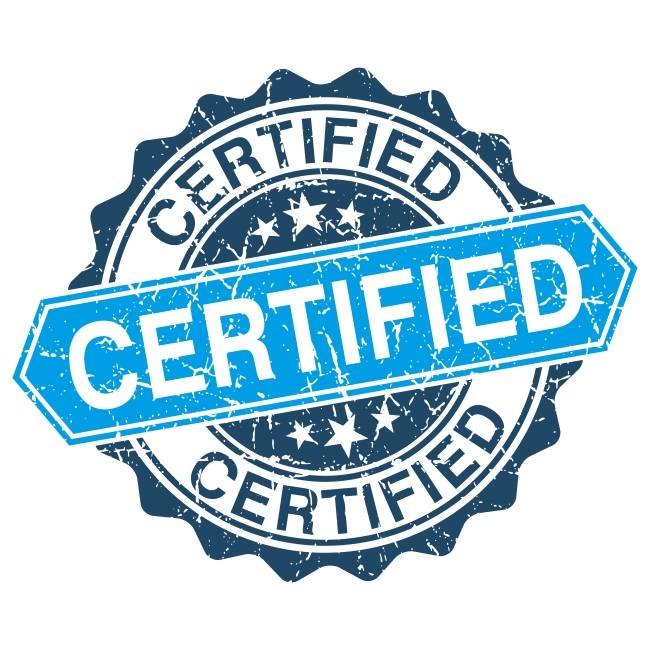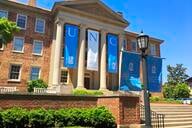You have /5 articles left.
Sign up for a free account or log in.

iStock
Interest is building for an alternative type of accreditation for online courses, boot camps, corporate training and other nontraditional education providers. And while that form of quality assurance remains a work in progress, a growing number of organizations are seeking to fill the need.
For example, a group of accreditors, associations and other established players in higher education have banded together to create a new umbrella group on quality review for alternative providers.
“We think it’s time to start having conversations, much the way regional accreditors do,” said Leah Matthews, executive director of the Distance Education Accrediting Commission, a national accreditor that has participated in the umbrella group’s initial meetings. “If this takes off really fast, we think it would be good to have some groundwork laid.”
Likewise, Skills Fund, an upstart form of accreditor and a student lender for boot camps, has expanded its reach. This week it announced a partnership with General Assembly, the biggest boot camp provider. So far 25 boot-camp companies have teamed up with Skills Fund.
And Entangled Solutions, a higher education consulting firm, also has made noise in the quality-assurance space. The company last year released a paper describing its approach, which focuses on measuring the value that programs claim to be providing, comparing it to what students actually buy.
Michael Horn, a principal consultant with Entangled Solutions, has helped lead an effort to create a nonprofit group that will develop quality standards for nontraditional providers. Participants in those discussions include boot camp providers; Beverly Perdue, the former North Carolina governor; and officials from Western Governors University, a pioneer in competency-based education.
The U.S. Department of Education has helped fan the flames for alternative accreditation. Last year the feds announced an experiment to make a small number of nonaccredited education providers eligible for federal financial aid. For the boot camps and online courses to qualify, however, they must partner with an accredited college and bring along a third-party quality assurance entity (QAE).
The department plans to announce the winning eight or so proposals sometime soon. And several of the potential accreditors that were part of applications have banded together to help create the new umbrella group.
The nascent organization still lacks a name. But likely participants have met three times, with another gathering slated soon. The group has received some start-up money from USA Funds and will be housed at the Presidents’ Forum, a collaboration of colleges and organizations that focuses on adult students and online learning.
Participants so far include officials from the Council for Higher Education Accreditation, Quality Matters, the Council for Adult & Experiential Learning, the National College Credit Recommendation Service, the United States Distance Learning Association, Charter Oak State College and the Online Learning Consortium.
The broad range of organizations means several approaches to measuring and verifying the quality of academic programs are represented.
“We do all take a different approach and bring different strengths,” said Deb Adair, executive director of Quality Matters, which reviews and certifies individual online courses.
Adair said the new group is working on “how to collaborate in ways that make the most sense for us and the industry.”
Ed Klonoski, Charter Oak’s president, has helped pull together the various organizations. He said it includes ones that focus on quality review at the course, academic program or institutional level.
The group’s goals are still taking shape. But Klonoski said they could include collaboration on national standards for academic quality among alternative providers. A big part of the work will be information sharing, including research on what works in quality review.
“We’re about ready to lay out a landscape,” he said. “We clearly want to have a voice at the policy table.”
Whether or not the group might have a revenue-seeking side remains to be determined, said possible participants, who said there are mixed feelings among the group on that question.
Trust but Verify
Alternative forms of education and training are expanding. That, in turn, is driving calls for trusted outside groups that can kick the tires on those education providers and then provide information students can trust.
"The new QAE standards need to be decided and governed by a nonprofit organization," said Paul Freedman, the CEO and co-founder of Entangled Solutions' parent company.
The federal experiment on nontraditional providers is contributing some momentum, although it’s not clear that the quality-assurance entities eventually will grow into a role like that of accreditors. To participate in the experiment, colleges must get approval from their accreditor -- so the new form of review appears somewhat symbolic.
However, the department is interested in seeing what emerges in the review part of the experiment. And groups that work as third-party quality reviewers as part of the project will have a leg up if alternative accreditation heats up.
“Somebody needs to set a lead role in setting baseline, credit-level equivalencies, for everybody,” not just alternative providers, said Burck Smith, the CEO and founder of StraighterLine, a company that offers low-cost online courses that lead to credit recommendations from the American Council on Education
Take boot camps, for example.
A growing number of students are willing to pay more than $10,000 on average for 12 weeks or so of training in coding, data science or other information technology-related fields -- as well as in business and other areas. But a big part of the draw, however, is that boot camp providers typically claim job-placement rates of more than 90 percent. But what do those numbers mean, and who’s checking them?
That’s where Skills Fund comes in. The company reviews the pedagogy of academic programs, curriculum, the admissions process, leadership of providers and outcomes like the job-placement rates and starting salaries of graduates, said Rick O’Donnell, the company’s founder and CEO, who also serves on the federal panel that oversees accreditors.
“We’re actually doing quality assurance every day,” he said. “We do a comprehensive look. Outcomes are the anchor.”
Skills Fund has reviewed and approved the training at boot camps that enroll 60 percent of the fast-growing sector’s students. Several boot camp providers have failed to make the cut, said O’Donnell, which means students in those programs are not eligible for loans from Skills Fund.
Participation for boot camp companies is voluntary. But they must open their books to earn a stamp of approval. This week Skills Fund announced that General Assembly had gone through the process. The lender will offer financing to eligible students at a few General Assembly campuses to start, with plans to roll out to all 15 of the company’s locations.
“At General Assembly, we are incredibly mindful that education is an investment of both time and money,” Anna Lindow, the company's general manager of campus education and operations, said in a written statement, “which is why we’ve always built our programs with an education-to-employment approach -- keeping both student experience and ROI top of mind.”
It’s not just boot camps that are joining together to find some mutually agreeable standards for learning outside of the traditional classroom.
For example, six colleges that have long focused on adult students recently created the Consortium for the Assessment of College Equivalency (CACE). The group has created an agreement on how and when to grant credit for college-level learning from noncollegiate settings. Charter Oak, Excelsior College, SUNY Empire State College, the Community College of Vermont, Granite State College and Thomas Edison State College are the consortium’s members.
The goal of the agreement, said Tina Goodyear, who directs Excelsior’s Center for the Assessment of Post-Traditional Instruction, Training and Learning, is for the colleges to share information about their review process of the creditworthiness of students’ previous learning and experience. Members of the group have agreed to accept one another’s reviews.
“It’s really hard to get six colleges to agree and share,” said Goodyear. But she adds that “it will be a cost saver for institutions.”




